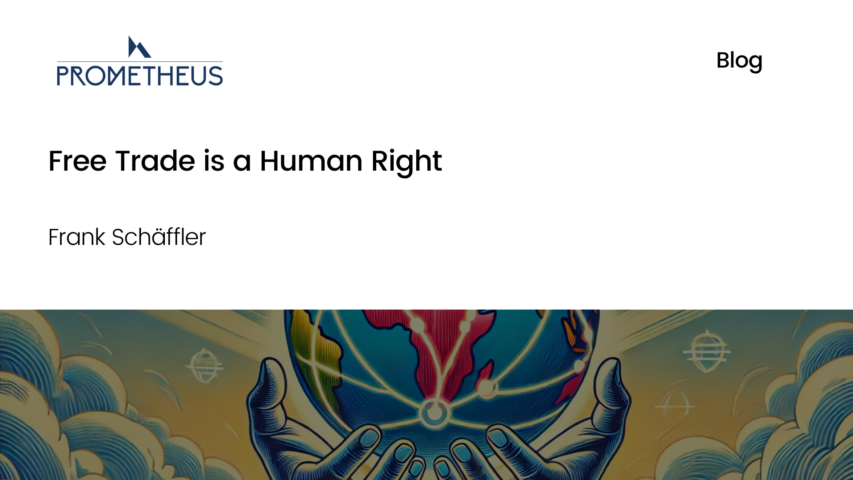Free Trade is a Human Right

Free Trade is a Human Right
Frank Schäffler // 18 November 2020
As Joe Biden becomes the 46th President of the United States, international trade will be the center of attention again. Joe Biden is not a free trader by nature, but he will make US trade policy far more predictable than his predecessor. This matters a lot, but does not change the core justification of global free trade, namely the notion that free trade is much more than just an economic development. It shall be considered as a human right.
As David Ricardo showed 200 years ago, free trade is justified because it increases overall welfare. Mutually beneficial trade is possible when both countries concentrate on producing goods for which they have relative cost advantages. Until today, this finding has provided an economic explanation for gains from international trade. The most obvious examples of this argument include China, the four Asian Tigers and India. Contrary to popular belief, the rise of these nations through trade has not harmed the developed world and its businesses. For example, the increased prosperity in Germany is a result of international trade.
Whilst the economic reasoning for trade is compelling, it is not the only or primary justification. Free trade is legitimized by an ethical argument. Thus, free trade would be worth pursuing even if Ricardo’s theory was flawed. As the philosopher Karl Popper would say: “We do not choose freedom because it promises us this or that. We choose it because it enables the only decent form of coexistence.”
Free trade is not, as the President of the German Bundestag suggested, an instrument of exploitation nor a mechanism for authoritarianism. Instead, free trade reflects humans’ innate willingness to cooperate. Since the early ages, humans have always traded ideas, goods and services. With the existence of trade there have always been political impediments to exchanges. Like politicians today, princes, rulers, and governments imposed tariffs to increase revenue and fund armies. Moreover, since their invention tariffs have consistently been used to bribe, fund, and empower certain groups of society.
One could say tariffs and other protectionist measures invite these small segments of society to express and enforce their interests at the expense of everyone else. Tariffs are government orders and those who do not comply with them, will be punished. They are the opposite of the generally applicable and strong laws that liberal democracies hold dear. In today’s societies which cherish so many essential rights, the right to free trade should not be omitted.
Free trade is not a privilege for Europe, the Western world or the OECD. Just as freedom of conscience is a universal right, so is free trade. Essentially, it is one of the most indispensable rights of defense towards the state. Therefore, the intrusion in individuals’ decisions to trade is as illegitimate as the interference in our private lives.
Hence, there are not only economic incentives but also human rights arguments for free trade. Ultimately, its legitimacy arises from the need to protect citizens from the despotism of those in power.
The author is a member of the German Parliament. The article was translated from the German original published by Prometheus.
EPICENTER publications and contributions from our member think tanks are designed to promote the discussion of economic issues and the role of markets in solving economic and social problems. As with all EPICENTER publications, the views expressed here are those of the author and not EPICENTER or its member think tanks (which have no corporate view).



